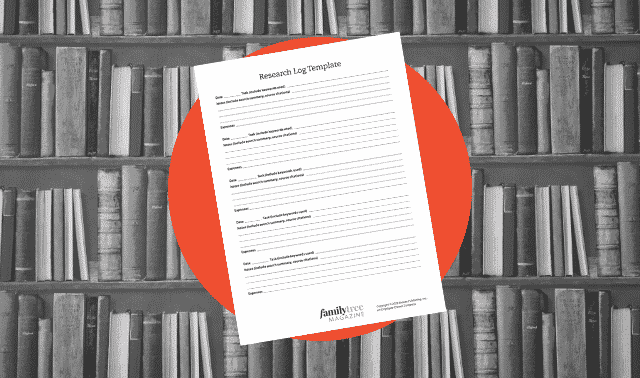Sign up for the Family Tree Newsletter! Plus, you’ll receive our 10 Essential Genealogy Research Forms PDF as a special thank you.
Get Your Free Genealogy Forms
"*" indicates required fields

A research log or calendar is a worksheet you use to record the facts about your genealogy searches and sources. It might sound like just another thing to do, but it’ll save you time in the long run: You’ll have a record of everything you did so you won’t repeat steps, you’ll easily be able to see which library or website held such-and-such a document, and you can avoid aimless searching by having a strategy in place.
You also can use the research log as a to-do list: As you learn about resources that might cover your ancestors, write the title and location on in your log. When you check the source, record the results.
Here at Family Tree Magazine we have several free, downloadable forms you can use to start your log. Thomas MacEntee offers his version for free over on his website.
You might find that using an app is a better option for you. Janine Adams, author of Organize Your Family History, shares her informal research log using Evernote here.
Or, you can use database software to create a computerized log. Keep a separate log (or spreadsheet) for each family or ancestor you’re searching; write the name(s) at the top of the form.
Then, whenever you check a resource, fill in the fields:
- Search Date: The date you did this search.
- Where Available: This might be a Web site URL or repository name.
- Call #: The call number of a book or film number of a roll of microfilm.
- Title/Author/Publisher/Year or Record Identification Information: This information will help you track down the source again, should you need to. If it’s an online database, include the database title. If it’s microfilmed court records, write the title of the roll and the court file number and date.
- Notes: Note the results of your search here—what did you find, and was it what you were looking for?
- Page #s: If you found your information in a book or ledger (in print or on microfilm), write the page number.
Last updated: January 2023






